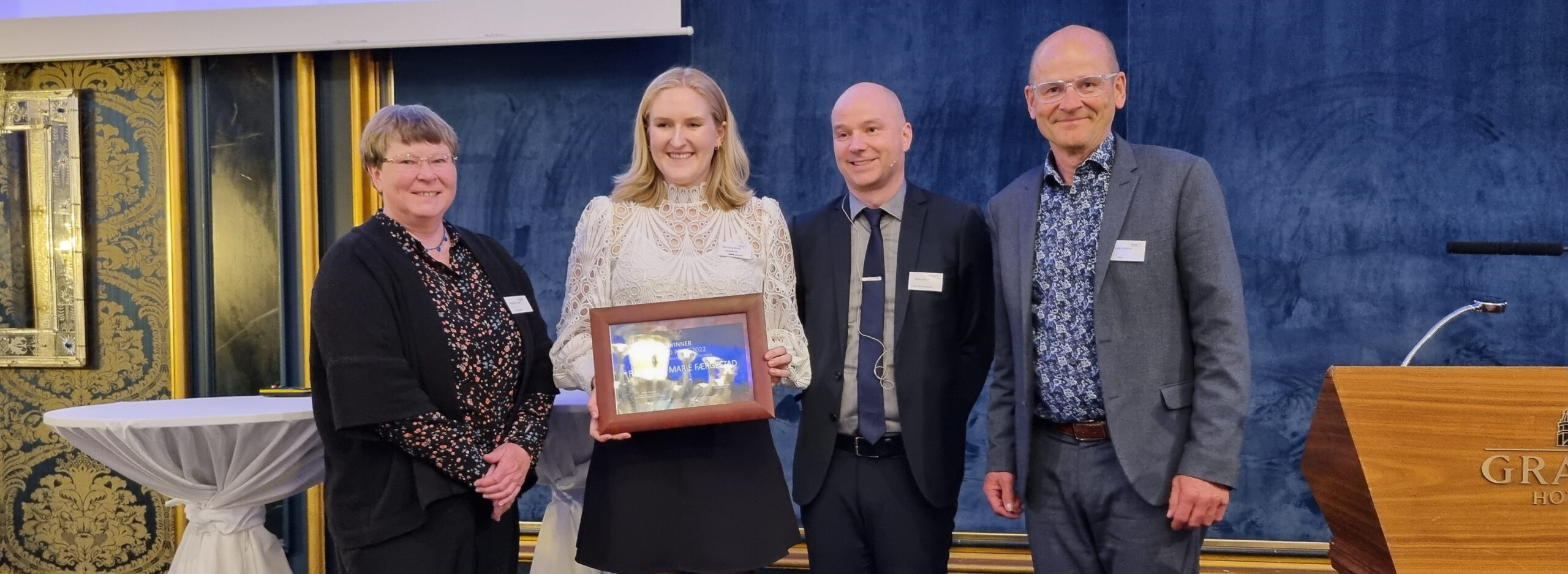Rannveig Marie Færgestad received the NIFRO award 2022 for her master’s thesis on protective shields against space debris.
– Space debris is a growing problem, and in the years to come the issue will become even more important, explains Færgestad. This week, she received the prestigous NIFRO award, the Norwegian space industry’s annual award for the best master’s thesis on space technology and space activities.
– For space stations; shield design and how to protect against space debris have been important knowledge for decades, the prize winner explains. – When it comes to smaller satellites it has so far not been economically beneficial to protect them against small fragments of space debris, but in the future, this is something that will be relevant for more and more satellite owners.
Shield protection for spacecrafts
This is where her winning thesis named “Modeling and simulations of shocks at extreme speed against spacecraft shields” comes into play. There are few laboratories offering collision testing at high enough speeds, and numerical simulations provides a far cheaper alternative.
Using advanced numerical analysis, Færgestad has modeled damage to spacecraft when hit by debris in orbit. Such models may be a key tool in the developement and design of protective shields for spacecraft, and her hands-on thesis received praise by the jury:
– This year’s winner of the NIFRO award, presents in her thesis a useful approach to modeling collisions, to ensure that both international and Norwegian space crafts can withstand potential collisions and contribute to a sustainable future in low earth orbit, they write in their justification.
Strong competition
Despite strong competition and several worthy prize winners, a unanimous jury selected the NTNU student’s thesis among the 13 theses received.
– This award means a lot, says Færgestad. – I have known about the NIFRO award since my first semester at the university. It har been very motivating throughout my studies to know that the space industry values good assignments.
Since 2013, the prize has been awarded annually by Andøya Space Education and the Norwegian Industrial Forum for Space Activities (NIFRO). In addition to honor and glory, the price is 20,000 NOK.
– Andøya Space is largely responsible for me deciding to pursue a career in space, the award winner announces. She is currently writing a PhD within the same topic. – In high school, I got to participate in the European Space Camp at Andøya. It really opened my eyes to all of the possibilities that exists. I am grateful that there are so many initiatives to involve young people in the Norwegian space sector.
The jury consisted of:
- Jøran Grande, Andøya Space Education
- Grunde Joheim, Kongsberg Defense & Aerospace
- Vendela Paxal, Professor II at NTNU
The Jury’s full justification (translated from Norwegian):
Space debris is a growing threat to current and future low-Earth spacecraft. There will be a need to meet this threat in order to ensure future exploration of space. Here, protective shields can be a significant contributor.
Experimental shocks at extreme speed are expensive and can only be performed in a few laboratories globally. This makes numerical simulations a key tool in developing and designing protective shields.
The recent year’s increasing focus on sustainability also for space actors, gives a greater joint responsibility to ensure that collisions with space debris do not cause critical damage to spacecraft, and that any collision create as few new fragments as possible.
This year’s winner of the NIFRO award presents a valuable approach to modelling collisions, to ensure that both Norwegian and international spacecrafts can withstand potential collisions and contribute to a sustainable future in low earth orbit.
The candidate has worked on a complex task with mathematical modelling, simulation and processing of results. The thesis requires the candidate to be able to translate physical knowledge into models and comparisons of experimental data. The issues are discussed at a very advanced level.
More information
Read more about the NIFRO award and the nomination process.

